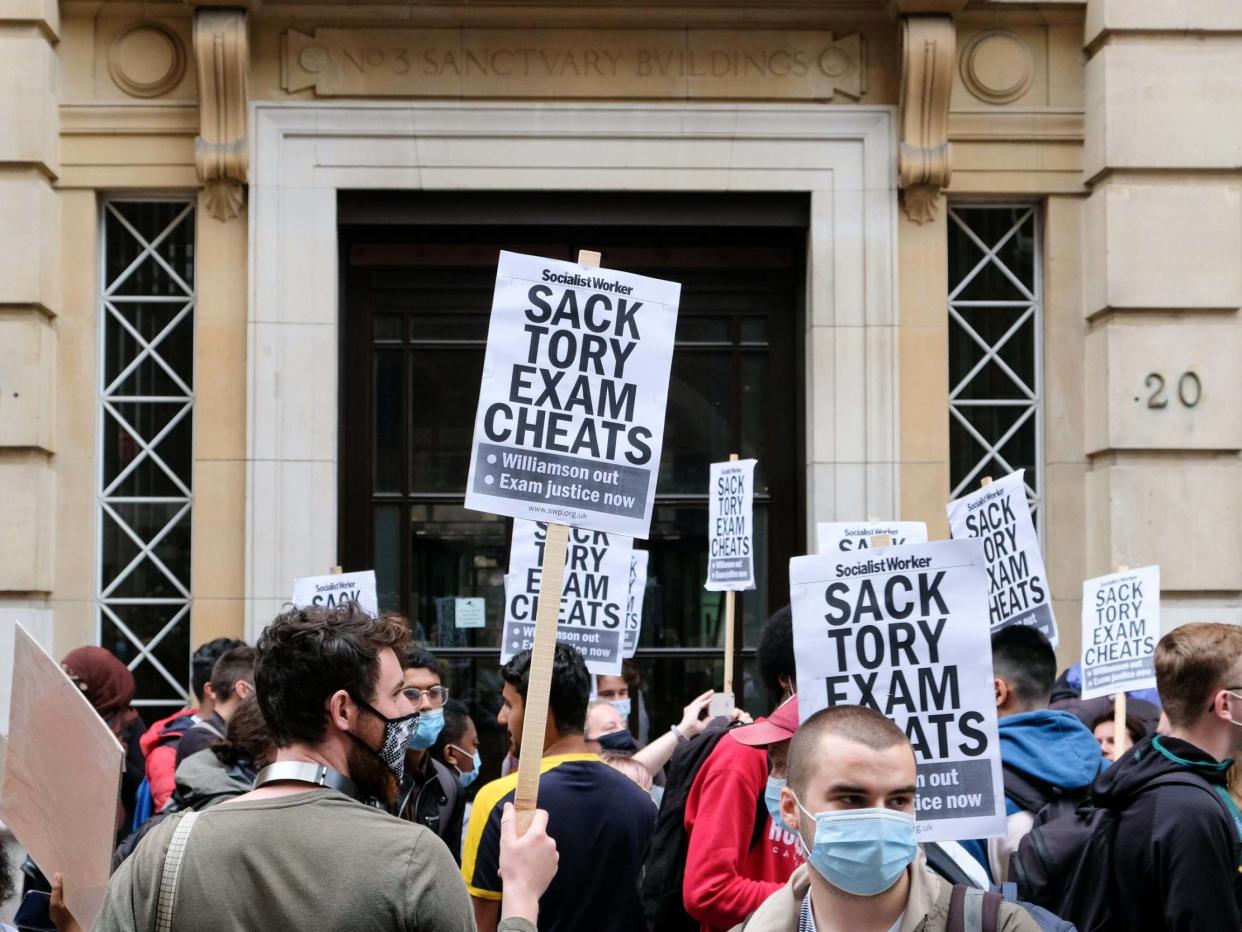A-level results protest: Students call for the government to ‘make the U-turn’ as they demonstrate in London for second day

Students have protested in London for a second day against the handling of this year's A-Level results, which saw tens of thousands of marks downgraded after an algorithm was used to moderate grades due to exam cancellations.
The organiser, a student from Kent called Ophelia Gregory, is calling on the government to follow Scotland's lead and undo the moderation which has seen disparities widen between students in deprived and affluent areas.
The demonstration was held on Saturday afternoon at Speaker's Corner in Hyde Park, where hundreds gathered to hear pupils speak about how they had been affected by the government's handling of results.
The organisers described the protest as a socially distanced event on Instagram, encouraging attendees to bring PPE and water, and "respect people's space".
A post shared by A Level U-Turn Now! (@aleveluturn) on Aug 14, 2020 at 1:14am PDT
Ophelia, who studied at Simon Langton Grammar School for Boys in Canterbury, said the government needed to make a U-turn similar to Scotland's and award students their centre assessed grades – the mark teachers predicted a student would have achieved had they sat the exam – immediately.
Saturday's event followed Friday demonstrations, where students and teachers called for Gavin Williamson, the education secretary, to resign over the controversy.
While Mr Williamson has said schools in England will be able to appeal against A-Level and GCSE grades free of charge, Ophelia underlined that the appeals process would not be fast enough for many who are set to lose their places at university.
"We want the government to use the centre assessed grades," the 18-year-old said.
"Not only do we want that, we want them to do it quickly. There's no reason why they can't click their fingers tomorrow and say, 'schools should email all the centre assessed grades to universities, and they should accept those'.
"The appeals process could take weeks and weeks and weeks, to the point where people have already missed their places. The deadline for Oxbridge, as it is for most universities, is 31 August because they've got to get their courses ready and know who is going."
Ophelia stressed the effect the fiasco has had on students' mental health and hopes for the future.
"This has come during a really, really awful time. People haven't been able to see their friends for months, they haven't gone to school – they're already depressed enough and they've been worried about these exams and the results for months on end. And to get here, and not be able to go to your firm, or even insurance, university choice ... it's going to have a massive impact on people's mental health but their lives in general.
"Going to university really does matter – they've just taken that away from a whole generation, largely from state schools, all in one go," she said.
"I just that it's disgusting."
Ophelia added that "the system is stacked in favour of private schools" and against state classes with larger class sizes.
"This has really screwed over clever individuals at schools that haven't done as well in the past."
Some 39.1 per cent of teachers’ predications for pupils in England were lowered down by one grade or more, according to data from the Office of Qualifications and Examinations Regulation (Ofqual).
While Ofqual maintained there was no evidence of “systemic bias”, analysis noted the biggest reduction in the proportion of students awarded C grades and above after moderation was recorded within those from disadvantaged backgrounds.
Read more
Government to cover cost of all A-level and GCSE results appeals
Oxford college to honour offers 'irrespective of A-level results'
Students demand Gavin Williamson resigns in Downing Street protest
A-level ‘chaos’ may widen north-south divide, regional leaders warn
Private schools see biggest increase in top A-Level grades
Why the A-level fiasco risks damaging Johnson’s ‘levelling up agenda’


